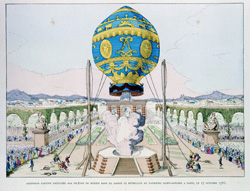Reinventions of the past
The spread of technical culture in Britain and France during the 18th and 19th centuries helped populations embrace new technologies and ensure smoother transition to a highly industrialised era. The EU-funded project 'Commercialisation of invention and the economy of knowledge. Britain-France, 18th Century' (C.I.T.E.K.) studied the spread of technical culture during that period. It looked at printed material, exhibitions and lectures as interesting vehicles of dissemination to spread technical knowledge. This industrial enlightenment, which appeared first in the United Kingdom, spurred investments and brought economic well-being. A look at our recent history from this perspective could highlight the importance of embracing technology and the positive repercussions on the economy. To investigate the power of technology culture, the project studied printed material and archives that highlighted technology in the past and instigated investment, looking as well at the associated level of public support. C.I.T.E.K. then examined how an inventor earned recognition for an invention and got it validated, focusing not only on the objects or technologies themselves but on production methods as well. One particular technology investigated, for example, was balloon flights and the marketing efforts involved. Others that required even more public subscription and support included the reflecting telescope in London and the steam engine in Scotland. Through these and other historical examples the project formed an understanding of the various commercialisation strategies for new inventions. This investigation covered role of patents, collaboration among inventors, advertising, investment in innovations and strength of public support. %lThe project has examined the economy at that time as social interaction and looked at investment through a process of improvement, where improvement actually became a social value. This kind of analysis looks at history from a more ingenious perspective and may have relevance today on the way we fund and exploit technology.







